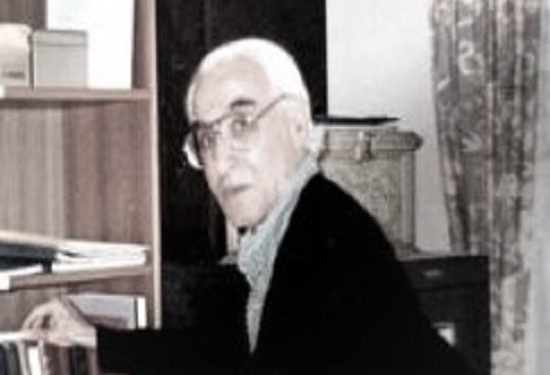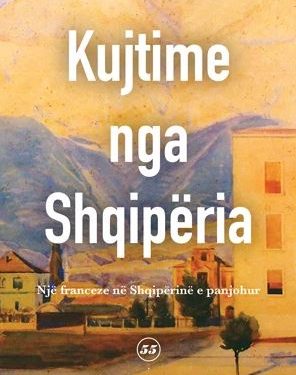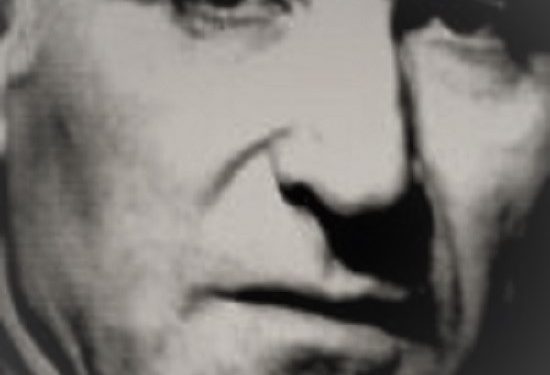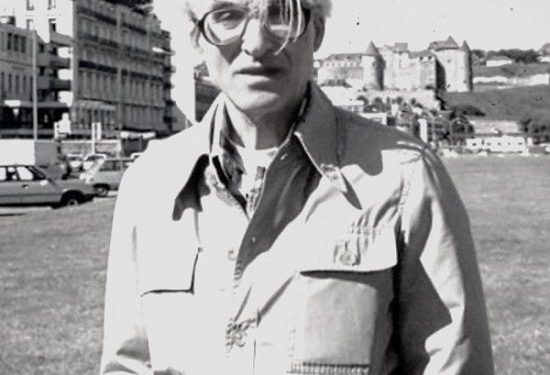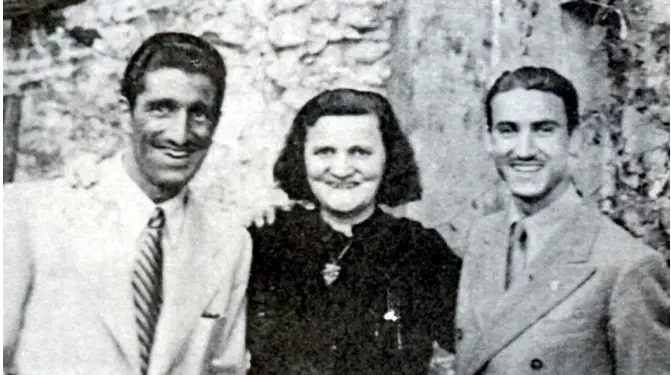By Odile Daniel
Part One
Memorie.al / I was in Paris when, in May 1992, I received a phone call from an Albanian from Washington, who wanted to meet me. He was a retired professor of Albanian and Italian language and literature, named Arshi Pipa. He had read some of my works on Albania and we had begun to collaborate by correspondence, especially with the creation of a magazine entitled ‘Albanica’ that he had published in the USA. I arranged to meet him in a café near the Saint-Sulpice church, because he was staying in a hotel in the Quartier Latin. I knew the value of this professor from his great name, because in 1978 he had published in English in the collection ‘Albanisce Forschungen’ (Albanian Research) of the University of Munich, three volumes on Albanian literature. He had also published, always in English, four other volumes in the USA, in the collection ‘East European monographs’ published by Columbia University Press in New York; the first volume, published in 1984, compiled by a group of authors under his direction, was about Kosovo. The second, published in 1989, was entitled ‘The Politics of Language in Socialist Albania’. The third, ‘Albanian Stalinism, Ideo-political Aspects’, published in 1990, was followed in 1991 by ‘Contemporary Albanian Literature’. I did not know the intellectual journey of this Albanian, but I had been amazed by the knowledge and the finesse of his analyses. He had taken over the management of the magazine “Dielli”, of the Albanian community in the USA.
For him to recognize me, I had to place one of his books on the table, with a blue cover. After waiting a while, I saw a small man, who must have been a little over 70 years old, come in. His white hair, parted in the middle, was cut in a square with a length that hid his ears. He immediately reminded me of Franz Liszt, or the statues of the Curé of Ars, which I had seen in churches.
His features were fine; his mouth with thin lips was surrounded by two lines of sadness, which went down to the bottom of his chin. He wore glasses with black frames and thick lenses, which emphasized the look of a myopic person. Although with white hair, Arshi Pipa had black eyebrows, quite thick, which emphasized his lively and sincere look. His facial expression and smile showed great kindness. We both spoke, looking each other straight in the eye.
Professor Arshi Pipa greeted me, using Albanian words, but the conversation took place in French, because he had a very good command of this language. He was even a polyglot, speaking, in addition to Albanian and English, French, Italian and German. He also had a deep knowledge of Latin. I took the courage to ask him if he had been born in the USA, to Albanian parents who had emigrated a long time ago, because I knew that in Detroit and Boston, there was a significant Albanian diaspora, or if he had been born in Albania.
– “I was born in Albania, in Shkodër, in 1920. My mother was from Shkodër. My paternal grandparents were originally from Libohova, that is, from the south of Albania where they held administrative positions, mainly in the judiciary. My father, a patriot and great democrat, was a lawyer. He was imprisoned many times during the Ottoman rule. I remember that he was friendly with the commander of the Allied troops in Shkodra, General Joseph Marie Bardi de Fourtou.”
– How long have you been living in the USA?
– “In 1957, I fled to Yugoslavia, where I stayed for almost a year, then, after a short stay in Italy, I settled in the USA in 1958.
– How were you able to leave Albania, because the country was surrounded by barbed wire and anyone approaching the border was shot on the spot, as happened to East Germans who wanted to cross the Berlin Wall? You crossed the paths of the Great Highlands, accompanied by “mountaineers”, who know the paths well that they use for herding cattle?
– My sister, Fehime, has written a family chronicle in which she tells the epic of our family. I must tell you that I was imprisoned for ten years in communist prisons and forced labor camps. I was first sentenced in 1949 to two years in prison for “agitation and propaganda” and, during the period of terror and purges of 1947, my sentence was reduced to twenty years; but, in 1949, during an extraordinary pardon, the sentence was halved and, in 1956, I was released.
When I got out of prison after ten years of isolation, I went to meet Ramiz Alina, who was then the Minister of Education and had been my student when I worked at the Tirana Gymnasium in 1943 and 1944. He received me very well and I was able to get a job as a teacher. I taught in the high schools of Tirana, Shkodra and Durrës, but since all the programs were filled with ideology and the texts were nothing more than slogans and parts of Enver Hoxha’s speeches, I resigned. Of course, I had not agreed to remove from the programs the texts of writers banned by the communist regime, such as those of Father Gjergj Fishta, one of the greatest intellectual figures. Also, I could not publish anything anymore.
– Yes, I understand. Everything had to go through the censorship. A whole constellation of authors whose opinions were not in line with the ideology in power were banned!
– Unable to practice my profession as a teacher, I had to decide to live in misery. So, one day, when a trusted person suggested that I escape, taking advantage of the help of an Albanian whose house was not far from the border with Yugoslavia, I accepted. So I left with my sister, who was dressed as a peasant. Each followed a different route and we met at a place where this mountaineer, a brave man of the brave, accompanied us to cross the border. We were both armed.
They took us to a refugee camp, and then they accepted us to stay in Sarajevo. I stayed there for several months as a political emigrant. I was lucky not to be returned to Albania, as often happened to escapees. I spent some time translating the poems of the greatest Latin authors into Albanian, in our Gheg dialect of Northern Albania. Then I left for Italy, for Rome, where I became friends with Martin Camaj, an Albanian from the north who had also left communist Albania, taking the path of exile through the mountains of the North. He taught Albanian at the University of Munich.
– What prompted you to go and live in the USA?
– I didn’t want to stay in Italy. Although I had followed a study program at the University of Florence, where I had published my diploma thesis, on the topic “Morality and Religion in Bergson”. But I had the sad memory of my brother, Myzaferi, who had been a law student in Padua and who had been imprisoned by the fascists on Ventotene Island, in the Tyrrhenian Sea, where opponents of fascism were sent. It was also easier for me to settle in the USA, because I had nephews there, who could wait for me.
I saw that Arshi Pipa’s face relaxed and a smile appeared. His black eyes began to sparkle. He had taken on a youthful look when he told me:
– At first, I had to work in New York as a security guard for a tire dealer, but I was so busy studying books that I didn’t notice that there were thieves in the store, so they quickly fired me.
– Have you taught Albanian in the US?
– Two years after arriving in the United States, I taught philosophy and religion at Philander Smith College in Little Rock, Arkansas. From 1963 to 1966, I taught in the Department of Italian at Berkeley University, where I also led a seminar on Albanian language, literature, and folklore. I concluded my career as a professor in the Department of French and Italian in Minneapolis, Minnesota, continuing to direct research on Albania. In 1968, I published a book on Dante and Montale. When I retired, I was given the title of “Professor Emeritus.”
I expressed my great appreciation to Arshi Pipa for his intellectual studies and, especially, for his great erudition.
– What I have noticed in your books is your very strong logic, your exemplary deductive spirit. Reading your books, one can draw a parallel with the Albanian writer Faik Konica who studied in France. He wrote a beautiful text in 1897, entitled “Some Advice on the Art of Writing”. It should be given as a model to students.
Faik Konica wrote that the writer must first clarify his thought and explain from the beginning, “where the rabbit sleeps”, according to an Albanian expression, and that the narrative must develop slowly from point to point, from deduction to deduction, with sentences logically connected to each other to arrive at a conclusion that summarizes the author’s thought. It is a pity that this writer was banned for almost fifty years in communist Albania, because he was the consul general of Albania in Washington, minister plenipotentiary from 1926 to 1939.
– Yes, answered Arshi Pipa, I think that Faik Konica, has done a lot for the progress of Albanian culture, spreading French culture in his magazine ‘Albania’ at a time when Albanians were still in the Ottoman Empire.
– Your books express concern for the continuity of the development of Albanian culture, but, unfortunately, they could not spread in Albania due to censorship; with the fall of the Marxist-Leninist regime, you could translate them into Albanian. I am mindful of the determination you have shown to deepen your studies of Albanian culture in fulfillment of the recommendations made to Albanians by Mit’hat Frashëri, whose father, Abdyl Frashëri, led the League of Prizren in 1878, to throw Albanians into a joint action, with the aim of liberation from Ottoman tutelage.
This writer, also denied during the dictatorship, wrote in 1924 in his book ‘Our Wounds’, a text in which he advised Albanian writers to take up their pens to work to raise the cultural level in Albania. This is precisely what you did in the country where you were exiled, with immense patience.
Mit’hat Frashëri was fully accepted in European literary circles. Aline Menard Dorian, from my mother’s family, who was born Menard, kept a salon where Alphonse Daudet, Emile Zola and the Goncourt brothers often came.
She corresponded with Mit’hat Frashëri in the years 1920-1922. She was vice-president of the League of Human Rights and welcomed artists, musicians, politicians and exiles to her salon. They called her “The Good Hostess”. When she died, Victor Basch, president of the League of Human Rights, praised this woman who supported oppressed peoples and exiles. She denounced dictatorships, called for cordial understanding and defended the freedom of peoples.
Arshi Pipa’s response surprised me:
– I see in you, who have worked in the field with perseverance under difficult conditions, the same determination that I experience to arouse interest in an isolated and despised country due to an ideology that has destroyed it. We must work for the revival of Albanian culture.
– I suggest you testify to your intellectual journey and your knowledge by giving some speeches to university professors and researchers. It would be a good example to show that there are Albanian intellectuals who have refused to submit and who have known Stalinist persecution. You can also tell about the movement that brought about the fall of communism and about recent political developments in your country.
Professor Pipa accepted and we decided to meet after a few days. As a gift, he gave me some copies of his first books written in Albanian, three volumes of poetry: ‘Lundërtarët’ published in 1944 in Tirana, as well as ‘Rusha’, published in 1968 in Germany. His poems spoke of Albanian-Serbian relations, of love and blood feuds in the second half of the 14th century. He also gave me his book titled ‘Prison book’ which he had published in Albanian in Rome in 1959 and which was dedicated to the victims of communism, telling me:
– I was able to publish these books, thanks to a friend, Zef Shllaku, who supported me financially. He was a northerner, a fugitive in the USA. There was a restaurant in San Francisco with Italian cuisine that had become famous because Luciano Pavarotti had frequented it. The Albanian diaspora in Detroit, New York, Washington and London also helped me in publishing my book.
In the Prison Book you will find texts that I wrote during my years in prison, first in Tirana in 1945
– 1946, then successively until 1956 in the prisons of Durrës, Burrel, Tirana, in the Vloçisht camp near Korça and in the Gjirokastra castle.
Thinking that I would not survive prison and forced labor, I wanted to leave a testimony. So, I wrote secretly in prison, in a small, neat script, on cigarette papers that I folded like an accordion and hid in the folds of clothes that I gave to my sister to wash when she came to visit me.
I asked Professor Pipa to write a dedication in his book, which testified to his years in prison. He wrote: “À Odile-Idole. A.P.” (“To Odile-Idol. A.P.”), making a play on words to show his intellectual appreciation for me. He also gave me as a gift, a pendant made of areca wood, made by a prisoner. It represented a rose. It was a touching memory.
We parted ways and, upon returning home, I immersed myself in reading his book. It was dedicated to the martyrs of the nation who had fallen honorably, victims of communism. In the preface, Arshi Pipa explained that he had not written in prose because, in the conditions he was in, either locked up in prison or held in a forced labor camp, he lacked the paper to write long sentences and, in addition, he was forbidden to keep a diary.
So, he had chosen poetry, for which he had an innate inclination. Through poetry that addresses the heart and evokes emotions, the most painful trials experienced were expressed in the best way and deeply touched the reader. Through his verses, the pain of the moment was expressed. I decided to translate part of Professor Pipa’s text. It was published in the magazine Alternativa e re.
Arshi Pipa had never really liked talking about his painful past. It was the first time I had met someone who had been a victim and who had suffered ten years in the gulag. Writing had been like medicine for him; in a way, it had relieved him and the stories of his suffering perhaps passed through the pen better than through words.
In the poem titled “The First Night”, Arshi Pipa is, during his arrest, in the Durrës Security Services (which at that time bore the strange name “Section for the Protection of Mopulli”). He mentions shadows, footsteps, the sounds of blows, screams, insults, a real hell where innocent people are immersed. He himself had known torture. In another poem, he testifies to the suffering of prisoners who had to push heavy wagons of dirt to work on the construction of the coastal road in Durrës.
In the first part of his book, he dedicates a beautiful elegy to his brother Myzafer Pipa, who had been a lawyer. After being imprisoned once in Italy by the fascists in 1940, he knew another imprisonment in the Nazi camp of Pristina. When he returned to Albania, he began publishing a cultural magazine entitled ‘Fryma’.
He was arrested in September 1946 and tortured with a hot iron in the Shkodra Security services, allegedly because he had wanted to escape, but the real reason was that he had defended Catholic priests in 1945. He was engaged in their defense, although he was a Muslim. He died in 1946 under torture, in the courtyard of the Stigmatine Sisters School in Shkodra. The family did not know where his grave was.
The poems are accompanied by extensive notes added by the author after his release. They provide details about Arshi Pipa’s stay in 1948, in the Vloçisht labor camp, near the Maliqi swamp. This was a large field surrounded by barbed wire, where 1300-1600 people, ordinary and political prisoners, lived in barracks. The class struggle was carried out there with fury. For the guards, political prisoners were representatives of the capitalist-bourgeois class and ordinary prisoners had the right to steal from them. To protect themselves, political prisoners slept with their bread hidden under their heads.
Arshi Pipa devotes twenty-four sonnets to the description of the reclamation work that the prisoners had to carry out. They had to open the Dunavec canal, several kilometers long at a depth of 3 meters and a width of 10 meters. The construction site was located 6-7 km away from the camp and the journey had to be made on foot. All the work was done with picks, shovels and hammers. If the prisoners did not meet the quota, they were beaten and deprived of food or tortured. Many of them died on the spot.
Arshi Pipa tells some horrific stories: a friend of his was executed for approaching the camp’s borders and a young man was buried alive, accused of trying to escape. Many men, exhausted and desperate, had committed suicide by hanging themselves from the bars of a window of their barracks. The Vloçisht camp was a real extermination camp.
Arshi Pipa tells an anecdote: when he asked a guard for a day off from work because his feet were swollen, he replied: “I thought they had left you in the prison infirmary, so you recovered, and you even got fat there.” Since he was silent, the guard continued: “Donkey, you don’t understand! They locked you up here to die and now you ask me for permission not to work…”?! The guard walked away cursing him.
The poems honor the victims of Buchenwald, Majdanek and Dachau, the victims of the Hungarian revolution, some brave fighters of Albanian history, and his brothers from Kosovo. Among the poems dedicated to his prison, the one titled Neli, named after his prison mate, is touching. Arshi Pipa had faced the horror by seeing Neli’s dedicated attitude, “a good seed of a bad fate. Thanks to him, I accepted life and was able to endure my fate”. He also honors the prisoners who never abandoned their convictions even in the worst suffering and ends by saying that he learned a lot in prison, much more than in books.
The professor also gave me a book of poems written in different languages. One poem, written towards the end of his life, testifies to his great sensitivity, sadness and deep friendship:
I dared to ask the professor about his biography, but, to spare him painful memories; I did not ask him about the years spent in prison and labor camps. I looked at the professor’s face, which bore witness to the suffering he had endured. He had pale, even white, skin. His gaze was strong and deep. He was quite sensitive and tears would quickly flow from his eyes at the slightest emotion. I noticed that he was a very gentle and respectful man. He never raised his voice. For him, the activities of the soul were his salvation. He had great intellectual vitality. His mission dedicated to the development of Albanian culture had saved him from despair.
I admired Professor Pipa’s moral strength, the power of endurance, the intellectual fire, and the finesse of his soul. He had confessed to me that he felt deeply European, even though he lived in the USA. He loved Corsica very much, with its wonderful landscapes that resembled those of his birthplace and, especially, its peculiarities and customs that were close to those of the Albanians. He often spoke of Prosper Mérimée, who had expressed his interest in the Albanians in his writings.
Arshi Pipa’s erudition was immeasurable. I wondered how he had acquired it. He had studied Latin and ancient Greek at the Jesuit college of Saint Francis of Shkodra, which welcomed Christians and Muslims, and then attended the state gymnasium of Shkodra. In 1944, at the age of 24, he had founded a magazine called Kritika. This was before the establishment of communism, which had crippled the entire cultural sector.
During our discussions, I learned a lot about Albanian history and culture. Listening to Professor Pipa speak, my idea that the humanities give you a fairly broad culture, great intellectual skills and a beautiful finesse of analysis was confirmed; perhaps the philosophy he had studied in Italy had also contributed. If Albania had not fallen into the trap of communism, he would have been a great intellectual figure of international stature. /Memorie.al




